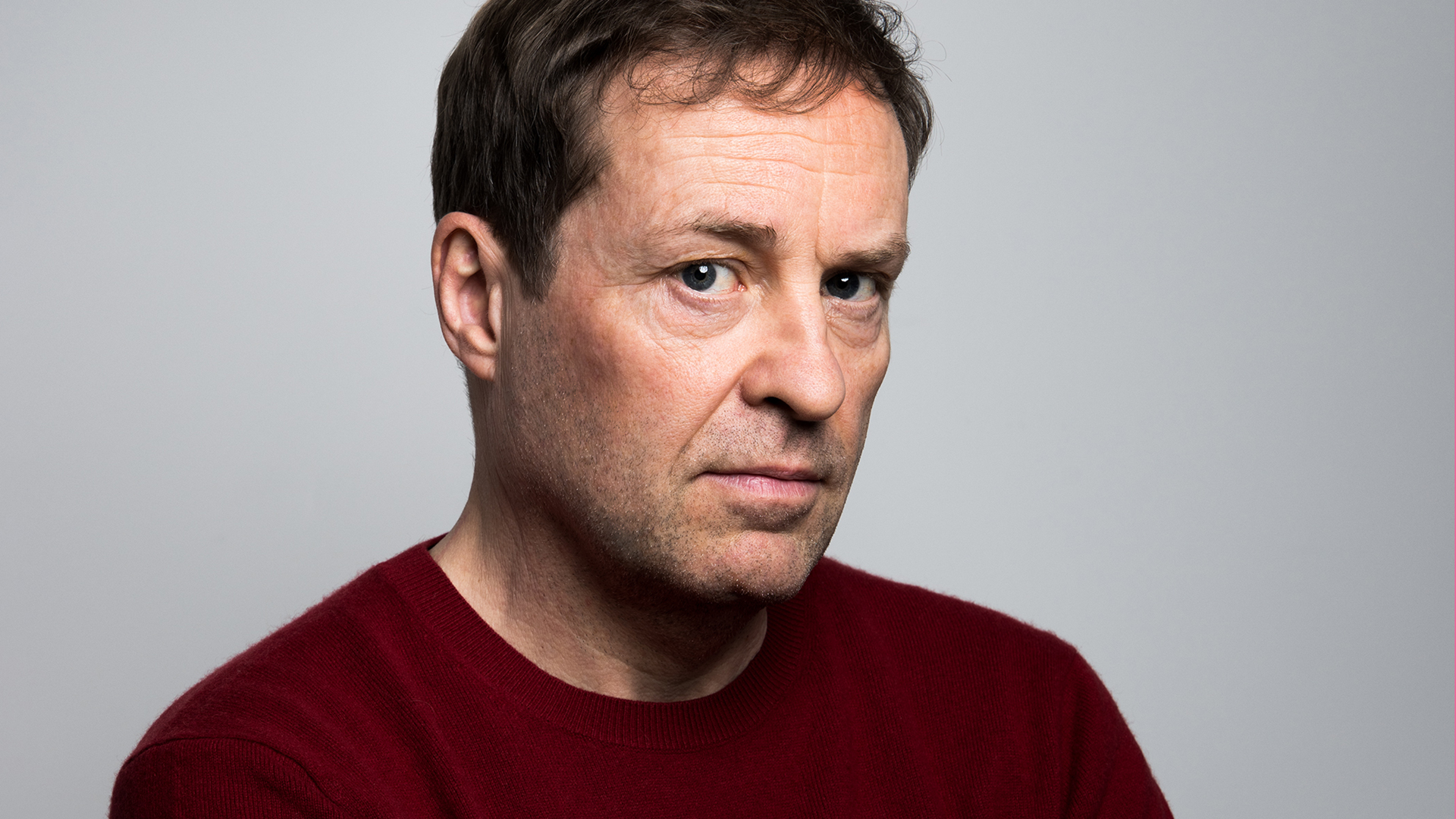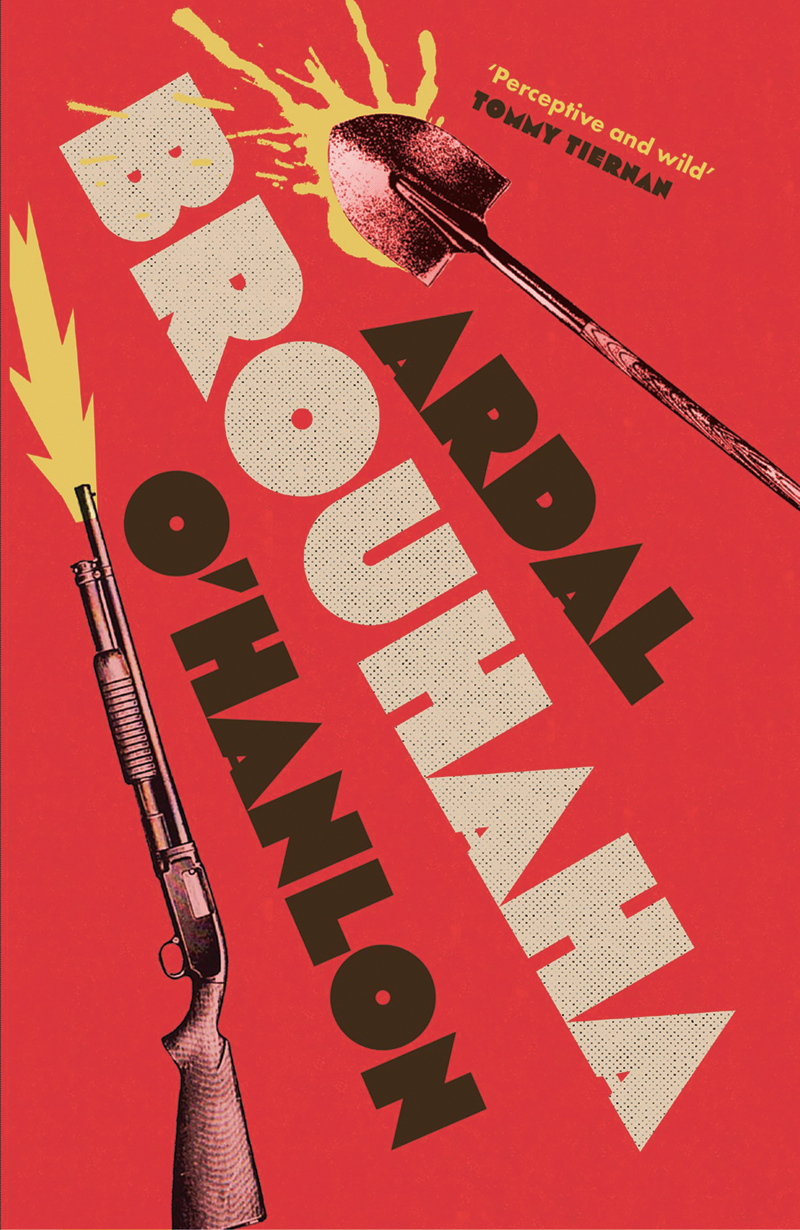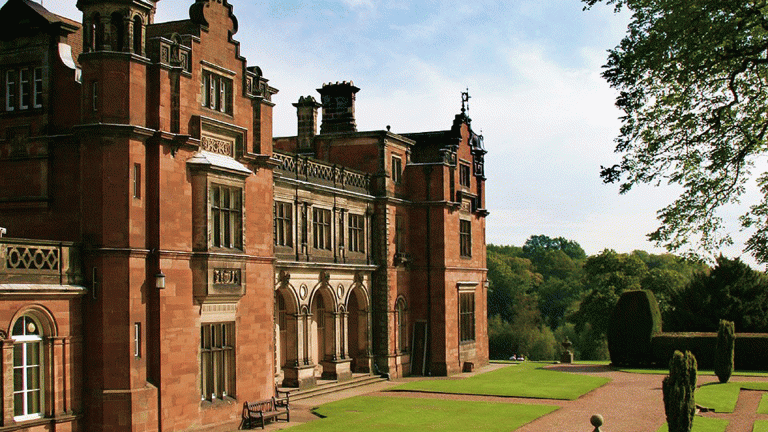Growing up near the Irish border has informed everything Ardal O’Hanlon has ever done. His childhood years in the County Monaghan town of Carrickmacross, on the southern side of that dividing line, saw him steeped in the area’s unique way with words (“they’ll often use 20 words where one word will do”), the deadpan humour, and the underlying threat of violence. It’s been there from his early stand-up, through his time on Father Ted and Death in Paradise, and – perhaps most tellingly – in his new novel, Brouhaha.
“I grew up in a lovely small town, a beautiful town. Very happy childhood,” he says. “And you could easily ignore the underbelly but, as a writer, you’re drawn to the dark side. You can’t afford to be squeamish as a writer, whether you’re a journalist, a fiction writer, or a stand-up comedian. You want to look into the abyss.”
Arriving 24 years after O’Hanlon’s debut novel, The Talk of the Town, became a bestseller, Brouhaha is set in a town very much like the author’s childhood stomping ground, with all the darkness and humour that implies. It follows the investigation into a young woman’s disappearance, and is part hard-boiled mystery, part “bog-standard existential novel”, part satire – but, most compellingly, it’s a humane study of a place and the people who live there.
“Growing up, my father was in politics [Rory O’Hanlon was a member of the Irish parliament for the conservative party, Fianna Fáil]. So there were always hundreds of people coming and going in the house,” says O’Hanlon. “I was exposed from a very early age to a lot of characters, and a lot of guff. So, when it came to writing this book, I was determined to set it in that locale and to capture that atmosphere, that humour, and that low-level sense of uneasiness. I was always interested in that contradiction between the civilisation of small towns, and the violence. In Ireland, we had things like forced adoptions. We had clerical sex abuse. We have poverty. I think a lot of us choose to ignore that a lot of the time, because otherwise life becomes unbearable.”
And, of course, for most of Ardal O’Hanlon’s life, there was the shadow of the Troubles. Brouhaha takes place in the period just after the Good Friday Agreement, a time where there was always a question lurking around any disappearance in the region: “is there a paramilitary involvement?”
Too complex, too unwieldy, too frightening, too sad… for much of the last 50 years, the Troubles has been near the top of the list of ‘things to ignore’, both in Ireland and the UK. It took the finale of Derry Girls – featuring a return visit from mother’s boy Eamonn, O’Hanlon’s fan-favourite character – to remind much of the UK what was at stake.










